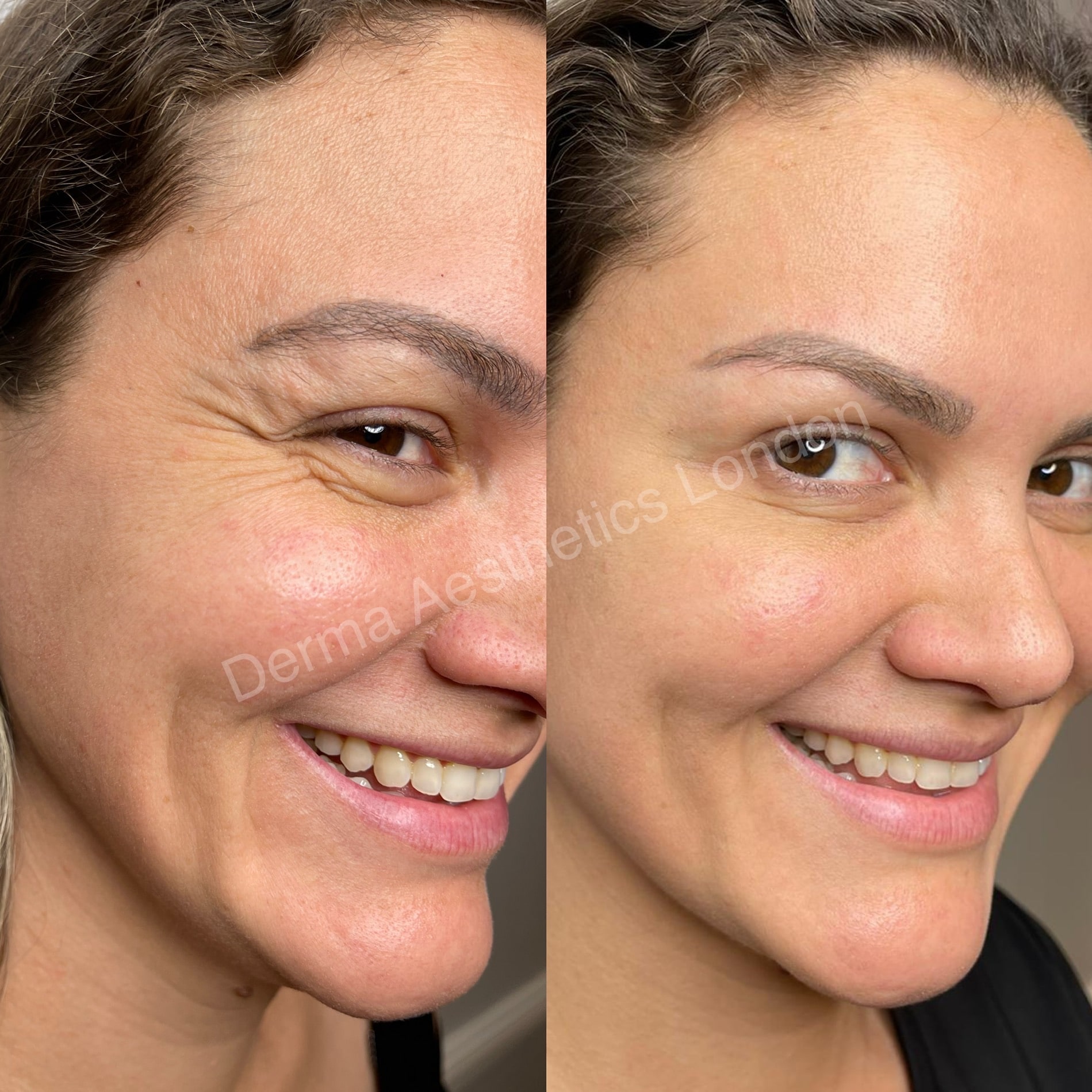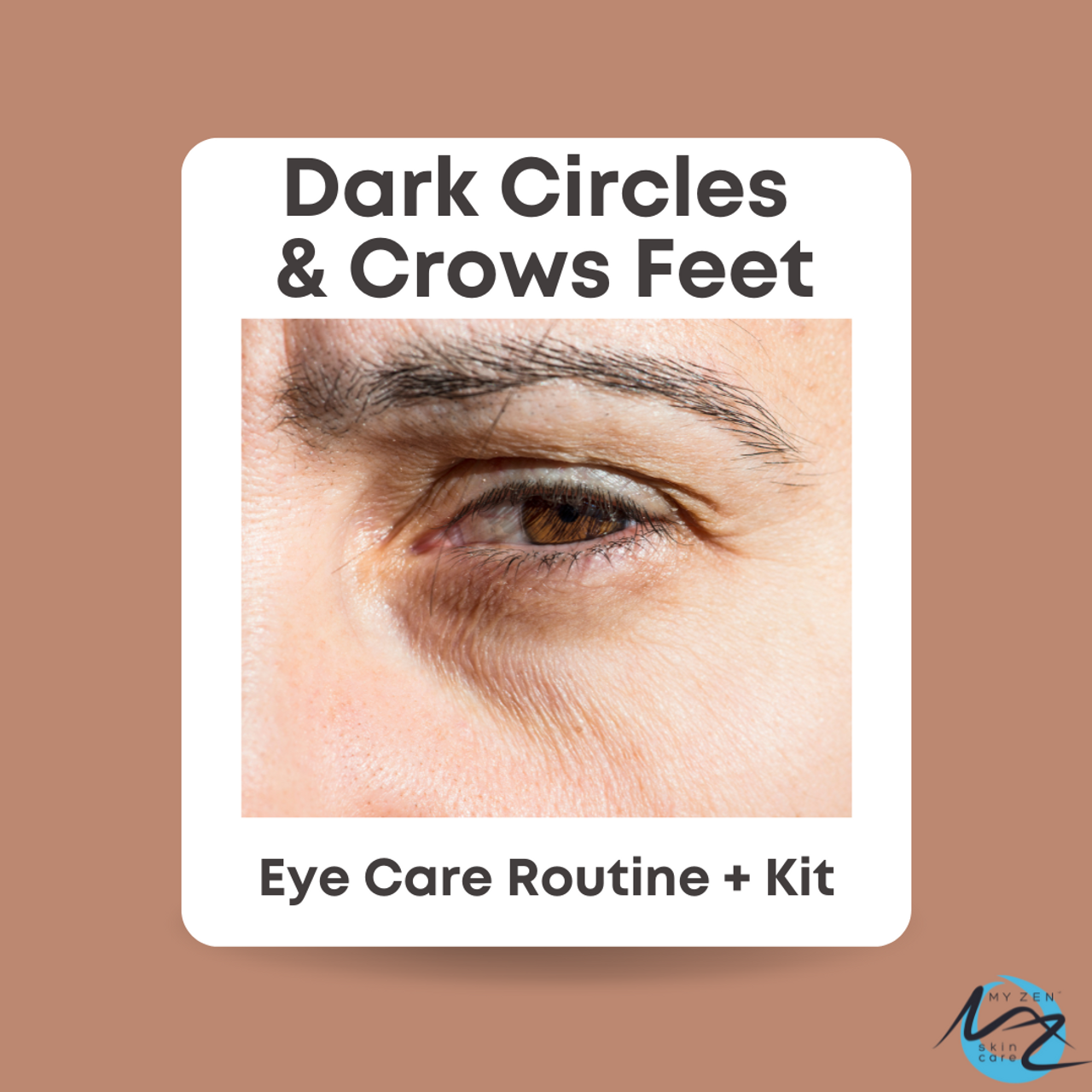Crow's feet, those tiny lines that form around the eyes, are one of the first visible signs of aging. Retinol has emerged as a powerful solution for combating these fine lines. If you're searching for effective skincare treatments to address crow's feet, retinol deserves your attention. This article will delve into why retinol is considered a game-changer and how it can help you achieve smoother, younger-looking skin.
Retinol is a derivative of vitamin A and is widely regarded as one of the most effective anti-aging ingredients in skincare. It works by promoting cell turnover, enhancing collagen production, and improving skin texture. Understanding how retinol can address crow's feet is crucial for anyone seeking to maintain youthful skin.
In this comprehensive guide, we'll explore everything you need to know about using retinol for crow's feet. From understanding the science behind retinol to practical tips for incorporating it into your skincare routine, this article aims to equip you with the knowledge to make informed decisions about your skin health.
Read also:Username Ideas For Fortnite Stand Out In The Battle Royale
Table of Contents
- What is Retinol?
- Retinol for Crow's Feet: How Does It Work?
- Benefits of Using Retinol for Crow's Feet
- How to Use Retinol for Crow's Feet
- Potential Side Effects of Retinol
- Best Retinol Products for Crow's Feet
- Frequently Asked Questions About Retinol
- Skincare Tips for Managing Crow's Feet
- The Science Behind Retinol and Anti-Aging
- Conclusion: Start Your Journey to Smoother Skin
What is Retinol?
Retinol is a form of vitamin A that plays a pivotal role in skincare. It is a non-prescription retinoid that stimulates skin cell turnover, boosts collagen production, and enhances overall skin texture. Unlike other skincare ingredients, retinol penetrates deep into the skin, promoting cellular renewal and reducing the appearance of fine lines and wrinkles, including crow's feet.
Research published in the Journal of Clinical and Aesthetic Dermatology highlights retinol's ability to improve skin elasticity and reduce the signs of photoaging. Its versatility makes it a staple in many skincare routines worldwide.
Retinol for Crow's Feet: How Does It Work?
Targeting Fine Lines Around the Eyes
Retinol works by accelerating the natural process of skin cell regeneration. As we age, the skin's ability to renew itself slows down, leading to the formation of fine lines and wrinkles, such as crow's feet. Retinol addresses this issue by:
- Increasing cell turnover
- Boosting collagen production
- Improving skin texture and firmness
By targeting these factors, retinol helps diminish the appearance of crow's feet and promotes a more youthful complexion.
Benefits of Using Retinol for Crow's Feet
Why Retinol Stands Out
Here are some of the key benefits of incorporating retinol into your skincare routine for crow's feet:
- Reduces Fine Lines: Retinol is effective in minimizing the appearance of fine lines and wrinkles, including crow's feet.
- Improves Skin Texture: It helps smooth out rough patches and uneven skin texture.
- Enhances Radiance: Retinol promotes brighter, more glowing skin.
- Boosts Collagen: By stimulating collagen production, retinol helps maintain skin elasticity.
These benefits make retinol a top choice for those seeking to combat crow's feet and other signs of aging.
Read also:Who Is The Worlds Skinniest Man Unveiling The Extraordinary Story
How to Use Retinol for Crow's Feet
Step-by-Step Guide
Using retinol effectively is crucial for achieving the desired results. Follow these steps:
- Cleanse: Start by cleansing your face to remove dirt and makeup.
- Moisturize: Apply a lightweight moisturizer to protect the delicate skin around your eyes.
- Apply Retinol: Gently pat a small amount of retinol around the eye area, avoiding direct contact with the eyes.
- Protect with Sunscreen: Always follow up with a broad-spectrum sunscreen during the day to shield your skin from UV damage.
Consistency is key when using retinol. Begin with a lower concentration and gradually increase as your skin becomes accustomed to the treatment.
Potential Side Effects of Retinol
Managing Retinol Sensitivity
While retinol is highly effective, it can cause some side effects, especially when first introduced to the skin. Common side effects include:
- Dryness
- Peeling
- Redness
To minimize these effects, start with a low concentration and use retinol every other night. Gradually increase frequency as your skin builds tolerance. Always consult a dermatologist if you experience severe irritation.
Best Retinol Products for Crow's Feet
Top Picks for Effective Results
Choosing the right retinol product is essential for addressing crow's feet. Here are some highly recommended options:
- RoC Retinol Correxion Deep Wrinkle Night Cream: Known for its potent retinol formula, this cream targets deep wrinkles and fine lines.
- Neutrogena Rapid Wrinkle Repair Retinol Serum: A lightweight serum that delivers visible results in as little as one week.
- Retin-A Micro Gel: A prescription-strength option for those seeking more aggressive treatment.
These products are trusted by dermatologists and skincare enthusiasts alike for their effectiveness in reducing crow's feet.
Frequently Asked Questions About Retinol
Answers to Common Queries
Here are answers to some frequently asked questions about using retinol for crow's feet:
- Can I use retinol every day? It's best to start with every other night and gradually increase usage as your skin tolerates it.
- Is retinol safe for sensitive skin? Yes, but start with a low concentration and patch test before full application.
- How long does it take to see results? Most users notice improvements in 6-12 weeks with consistent use.
These answers aim to address common concerns and help you make informed decisions about your skincare routine.
Skincare Tips for Managing Crow's Feet
Complementary Strategies
While retinol is a powerful tool, combining it with other skincare practices can enhance its effectiveness:
- Stay Hydrated: Drink plenty of water to keep your skin hydrated.
- Protect with SPF: Daily sunscreen use is crucial for preventing further damage.
- Use Eye Cream: Apply a nourishing eye cream to support the delicate skin around your eyes.
By adopting these habits, you can maximize the benefits of retinol and maintain healthier skin.
The Science Behind Retinol and Anti-Aging
Understanding the Mechanism
Retinol's effectiveness lies in its ability to stimulate the production of collagen, a protein responsible for skin elasticity and firmness. As we age, collagen production decreases, leading to the formation of fine lines and wrinkles. Retinol reverses this process by:
- Promoting cellular turnover
- Increasing collagen synthesis
- Enhancing skin barrier function
Scientific studies, such as those published in the American Journal of Clinical Dermatology, confirm retinol's role in improving skin health and reducing signs of aging.
Conclusion: Start Your Journey to Smoother Skin
In conclusion, retinol offers a powerful solution for addressing crow's feet and other signs of aging. By understanding how it works, incorporating it into your skincare routine, and adopting complementary practices, you can achieve smoother, more youthful-looking skin.
We encourage you to share your experiences with retinol in the comments below. Additionally, explore our other articles for more skincare tips and insights. Together, let's take the first step toward healthier, more radiant skin.



